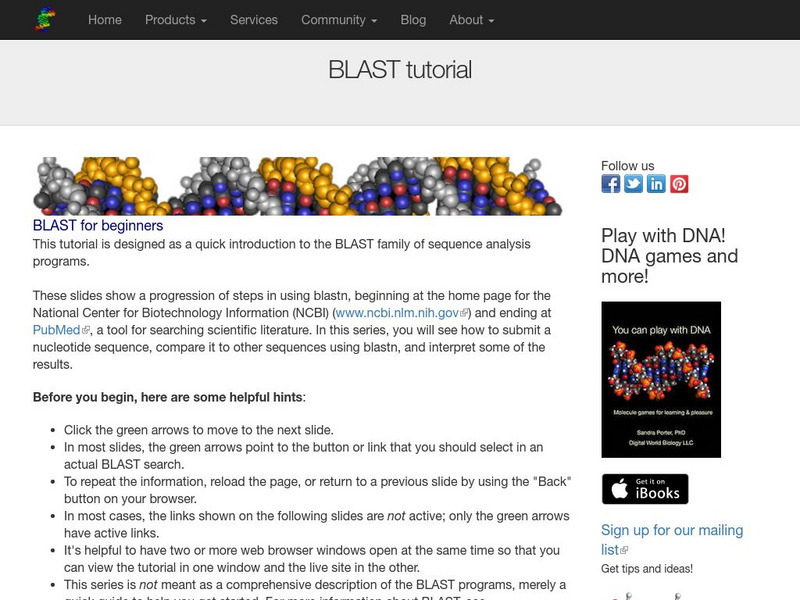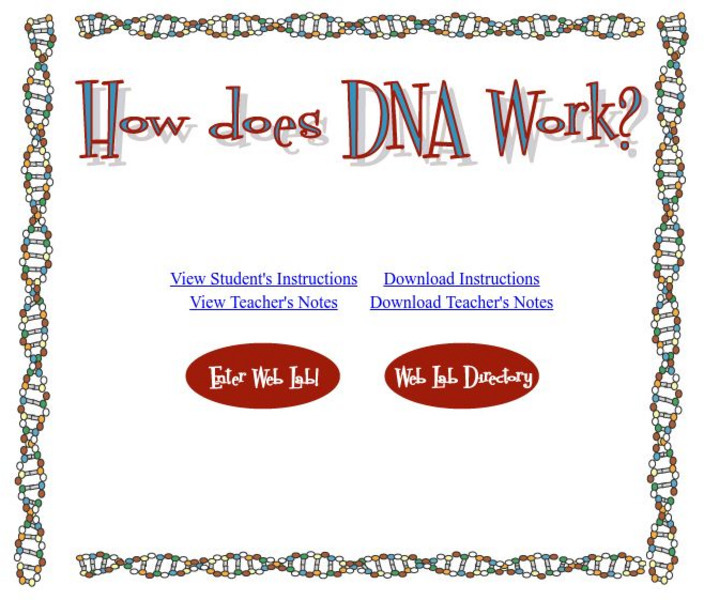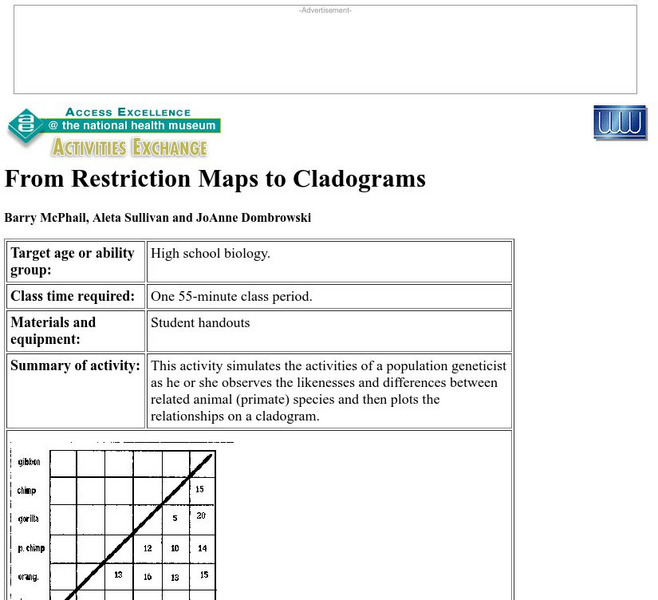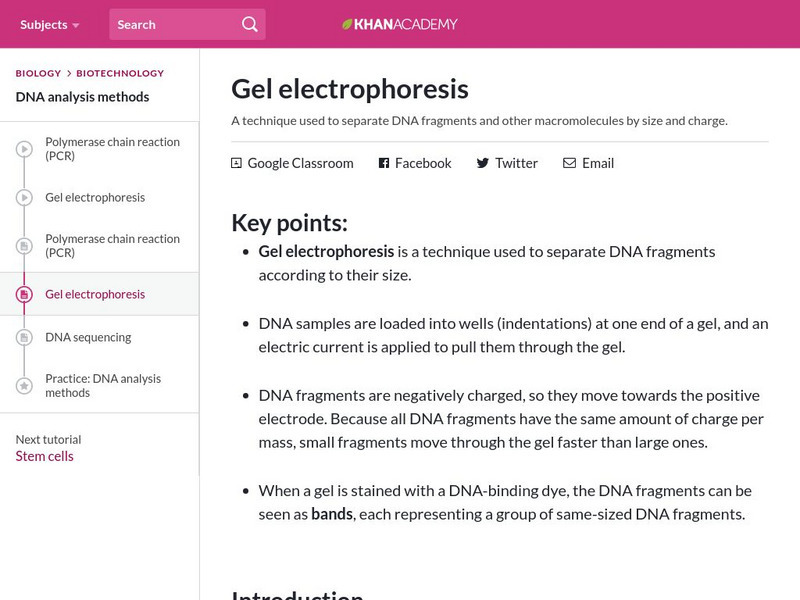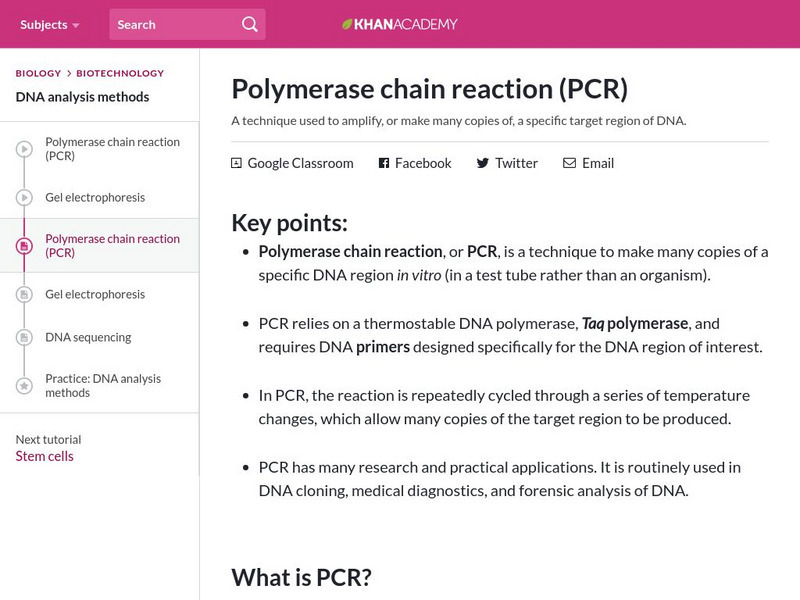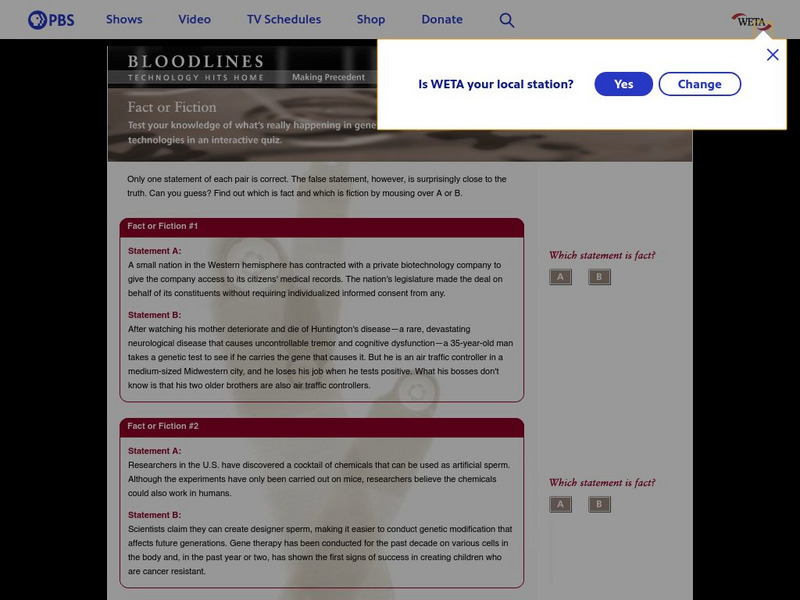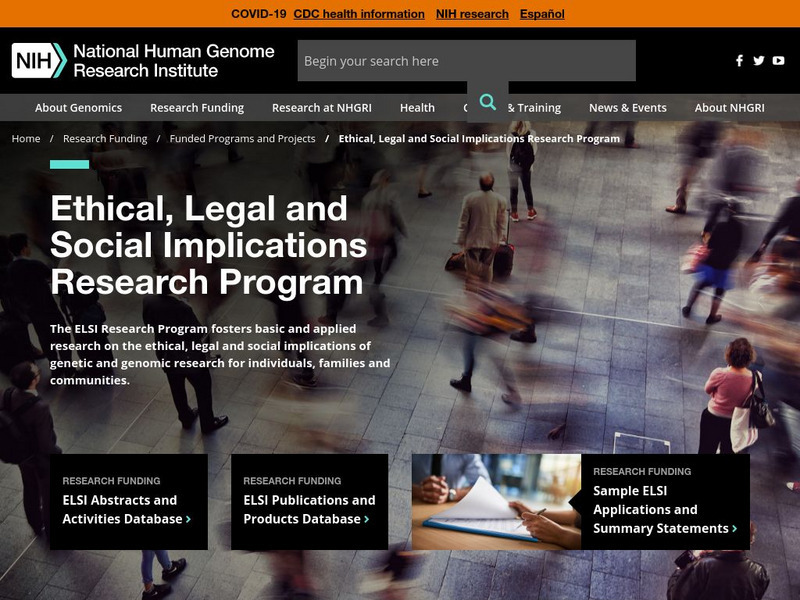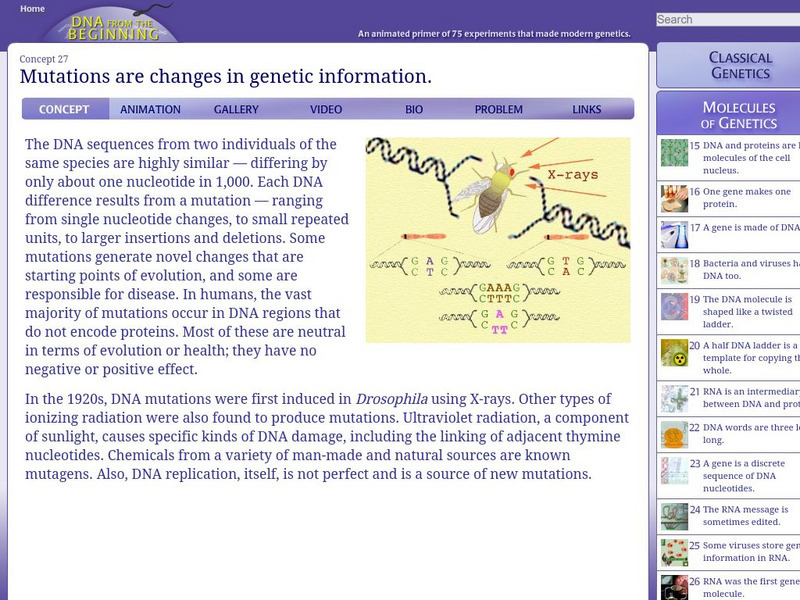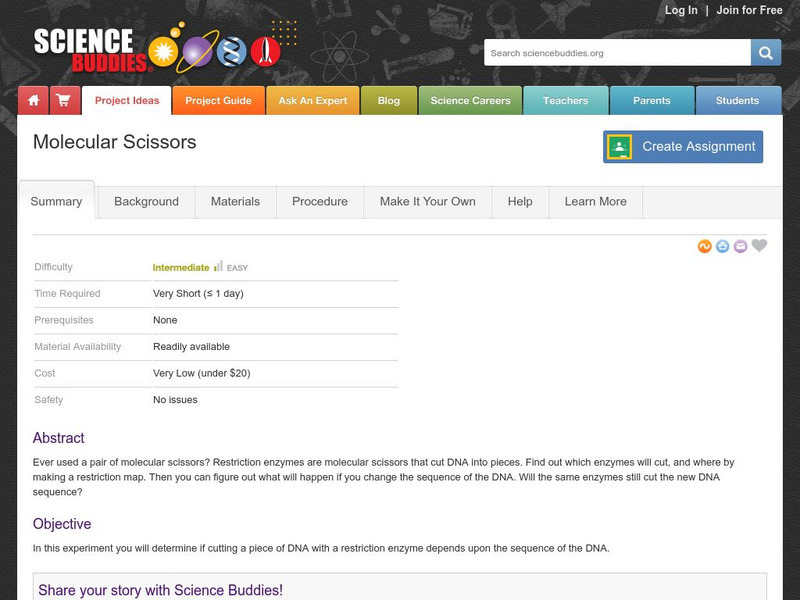Cold Spring Harbor Laboratory
Dolan Dna Learning Center: How Alu Jumps
Animation illustrating how the jumping gene, Alu, reproduces by copying itself and inserting into new chromosomes.
Other
Human Genome Sequencing Center (Baylor College of Med)
Resource presents information about the human genome sequencing project and has links to other genome projects besides the Human Genome Project.
Other
Australian Genome Research Facility (Home Page)
This is the homepage of the Austrialian Genome Research Facility. It is dedicated to the sequencing of DNA and understanding genetics.
Other
Digital World Biology: Blast Tutorial
A series where students see how to submit a nucleotide sequence, compare it to other sequences using blastn, and interpret some of the results.
Cold Spring Harbor Laboratory
Dna From the Beginning: Dna Is Only the Beginning
The human genome project was established to determine the sequence of DNA bases that are found in each human cell. Understanding what the resulting proteins do is an entirely different project. This page is about how we are trying to...
PBS
Pbs Learning Media: Genetic Variation
This video segment from NOVA: "Cracking the Code of Life" explores the genetic similarities and differences among organisms.
Khan Academy
Khan Academy: Intro to Biotechnology
An overview of what biotechnology is including DNA technology. Also explore ethical questions in biotechnology.
Education Development Center
Education Development Center: How Does Dna Work?
Learning about transcription and translation can be difficult but this animation helps make the processes less confusing. The animation is interactive and it also covers the overall importance of proteins.
Cold Spring Harbor Laboratory
Dna From the Beginning: A Genome Is an Entire Set of Genes
This multimedia article includes animations, pictures, video, biographical information, and quiz questions that are accessed by clicking on buttons along the bottom of the page. The topic is the human genome.
University of California
University of California Museum of Paleontology: Genetic Similarities
A look at the techniques scientist use to analyze DNA for genetic similarities.
University of Utah
University of Utah: Learning Center: Learn Genetics:the Outcome of Mutation
Mutation is a process that changes a DNA sequence. But how does a difference in a gene's DNA sequence (or genotype) lead to a difference in an observable trait (or phenotype)?
PBS
Pbs Teachers:build a Family Tree (Men Only)
Understand DNA sequences and the Y chromosome. Solve a genealogical puzzle using the power of reasoning and understanding of DNA, and complete the a male family tree using DNA information from the Y chromosome of three fictitious...
National Health Museum
Nhm: Restriction Maps to Cladograms Lesson
This lesson plan requires students to analyze DNA restriction maps to determine the differences in the sequence for several primates and humans. They then use the information to create a cladogram.
Other
Digital World Biology: Blas Ting Through the Kingdom of Life
Use BLAST to identify unknown sequences. GenBank contains over 3 million sequences, with over 14 billion nucleotides. BLAST can be used to compare an unknown sequence to all the sequences in the database, and find sequences that match....
CK-12 Foundation
Ck 12: Life Science: 3.19 Human Genome
See how the human genome project sequenced all 3 billion bases that make up our DNA and identified within this code more than 20,000 human genes.
Oak Ridge National Laboratory
Human Genome Project: Project Information
This site provides from the Human Genome Project provides basic information on the Human Genome Project. Among the items discussed is how genome sequencing is done, as well as information about the genome and proteome.
Khan Academy
Khan Academy: Gel Electrophoresis
Learn about the technique used to separate DNA fragments and other macromolecules by size and charge.
Khan Academy
Khan Academy: Polymerase Chain Reaction (Pcr)
A technique used to amplify, or make many copies of, a specific target region of DNA.
PBS
Pbs: Fact of Fiction
At this site from PBS you can challenge yourself with this quiz to see if you know what is true and what is false in genetic and reproductive technology. You'll be surprised by some of the things that we are currently able to do with...
National Human Genome Research Institute
Ethical, Legal, and Social Implications Research Program
This is the official division for researching the implications of the Human Genome Project. Find out about topics being discussed involving the ethics of the program, how it is socially accepted, and what sort of legislature is involved...
Nobel Media AB
The Nobel Prize: Michael Smith Biographical
Dr. Michael Smith (1932-2000) won the Nobel Prize for Chemistry in 1993 for his work in mutagenesis, which involved altering DNA sequences. This is his autobiography.
Howard Hughes Medical Institute
Hhmi: Bio Interactive: Bacterial Id Virtual Lab App
This app will help students "learn about the science and techniques used to identify different types of bacteria based on their DNA sequences".
Cold Spring Harbor Laboratory
Dna From the Beginning: Mutations Are Changes in Genetic Information
This article explains how and why mutations are so important to genetics.
Science Buddies
Science Buddies: Molecular Scissors
Ever used a pair of molecular scissors? Restriction enzymes are molecular scissors that cut DNA into pieces. Find out which enzymes will cut, and where by making a restriction map. Then you can figure out what will happen if you change...





